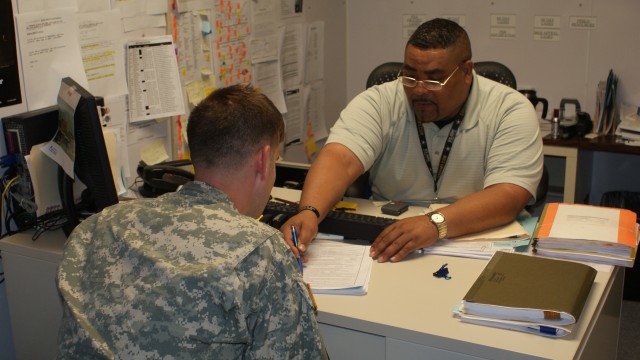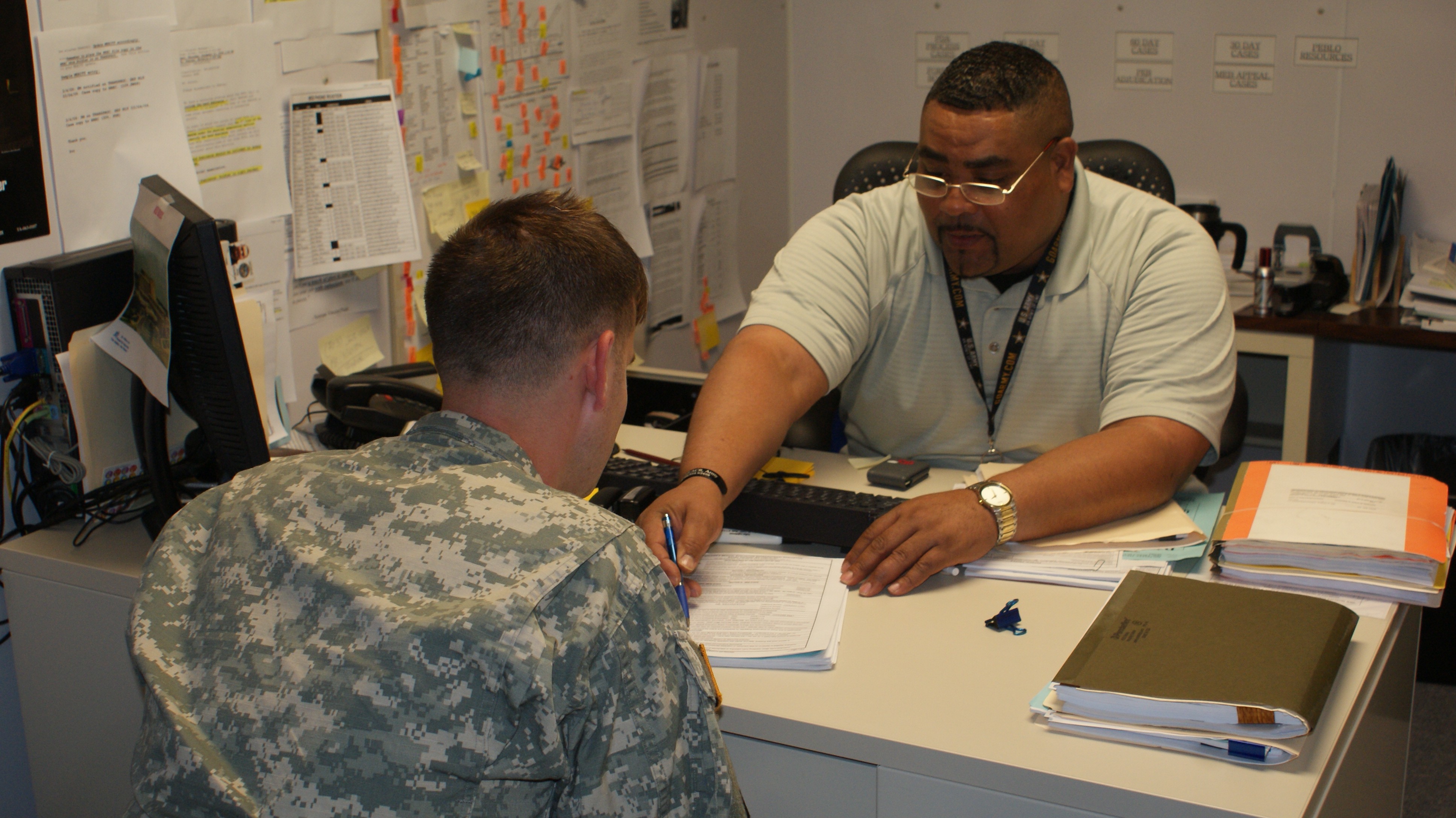FORT HOOD, Texas - As Fort Hood Soldiers continuously answer the Army's call to fight in Iraq and Afghanistan, the frequent deployments can take a toll on Soldiers both mentally and physically.
In some cases, medical or mental health issues may progress to the point that a Soldier has significant difficulty performing their duties, and the Soldier is referred to a Medical Evaluation Board to determine whether he or she meets retention standards.
Fort Hood's heavy deployment cycle has resulted in an increase in the caseload for Carl R. Darnall Army Medical Center's MEB process.
In January 2008, for example, Darnall was handling twice the number of cases than in July 2007. By April 2008, the caseload had peaked to a high of more than 830. To improve the process and help Soldiers through the system faster, Darnall officials put into action two initiatives for improvement.
In June of 2008, they created a Medical Retention Decision Point Review and in October of 2008, an MEB Clinic was established.
Those changes resulted in a decreasing number of caseloads and a decrease in the length of time it takes to process a caseload. For example, the number of cases older than 90 days declined from a high of 509 in July 2008 to 140 by December 2008. And, the ability to process new cases within the 90-day standard increased more than 400 percent from January 2008 to January 2009. Since the beginning of this April, only 26 cases have not been completed in 21 days.
"The changes have made the process more efficient, improving process times," said Col. Wilma Larsen, chief of Darnall's MEB Clinic. She credited the co-location of personnel and providers who specifically work with MEB cases. "It used to be that any provider that had the authority to write a P3 profile could write it, and that profile had to be sent for a second signature," she said. "Now, only the providers in this building write permanent profiles."
Larsen explained that the MRDP, which serves as a pre-MEB, ensures that all appropriate medical care is completed for any conditions that may cause a Soldier to not meet medical retention standards. "We now evaluate the Soldier before we institute the board process and ensure that we've taken care of everything that we can before we start a medical evaluation."
The other change, the co-location of personnel, places six MEB Physicians and six permanent Physical Evaluation Board Liaison Officers Teams, each with one lead PEBLO, four PEBLOs, and a case coordinator, into one building. Before the initiatives, personnel were located in multiple areas.
The clinical portion of the consolidated MEB Clinic performs physical examinations, provides clinical documentation of evaluations, and manages the primary care needs of non-Warrior Transition Brigade Soldiers who are in the MEB process. The clinical needs of each case are addressed from pre-MEB through completion. The administrative functions of the consolidated clinic are organized into PEBLO teams who prepare and process the MEB case packets, track case progression, counsel and advise Soldiers, and communicate with Soldiers' chains of command.
Larsen said that the number cases during the last seven years have been fairly consistent. "The cases certainly fluctuate on a monthly basis," she said, "but we take about a 100 cases in a month and then we process out a variable number, usually a 100 cases as well." She said that the number fluctuates, depending on the deployment cycle.
She said that the clinic is seeing a lot more Soldiers with psychiatric issues than in the past. "That is becoming one of our biggest issues; the number of Soldiers that require psychiatric care for PTSD and depression.
"A high percentage of our boards have a psychiatric component. It takes longer to get those boards through because there are fewer providers per Soldier who can do that. We're in the process of hiring more and we've greatly plussed ourselves up on the psychiatric side during the last two years, but there's still a shortage for us." Larsen said another common medical issue is musculo-skeletal pain, exacerbated by body armor and other equipment Soldiers carry.
Besides hiring more psychiatric providers, other plans include teaming up with the Veterans Administration, which will place the VA equivalent of Army PEBLOs at Darnall next to the MEB Clinic. Larsen said that right now that is planned for this coming August. She said that the Army and VA rating systems differ. Sometimes, she said, Soldiers don't understand the difference in ratings. Locating VA personnel at Darnall should lead to a better understanding on the Soldier's part, Larsen said.


Social Sharing